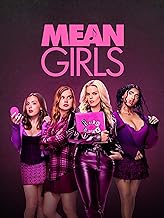Glenn Greenwald is aghast at the judicial stylings of the Biden-appointed SCOTUS justice:
KBJ doubles down: “My biggest concern is that your view has the First Amendment hamstringing the government in significant ways.”
— System Update (@SystemUpdate_) March 18, 2024
That is, quite literally, the entire point of the First Amendment—of the entire Bill of Rights. pic.twitter.com/gWMCaHDG1W
And rightly so.
If you prefer more text in your Supreme Court tea leaf-reading, here's Jacob Sullum: SCOTUS Ponders Whether Biden Administration Coerced Social Media Platforms To Censor Speech.
The U.S. Supreme Court on Monday considered dueling interpretations of the Biden administration's interactions with social media platforms regarding content it viewed as dangerous to public health, democracy, or national security. During oral arguments in Murthy v. Missouri, Louisiana Solicitor General J. Benjamin Aguiñaga said those private contacts, combined with public statements condemning the platforms' failure to suppress "misinformation," amounted to government-directed censorship. U.S. Principal Deputy Solicitor General Brian Fletcher disagreed, saying neither crossed the line "between persuasion and coercion."
If the federal government coerced platforms to censor speech by threatening them with "adverse government action," Fletcher conceded, that would be a clear violation of the First Amendment. But "no threats happened here," he argued, because White House officials merely "use[d] strong language" while encouraging the platforms to suppress speech that offended them and "referred in a general way to legal reforms in response to press questions." Any attempt to enjoin the government from privately pressuring Facebook et al. to crack down on controversial speech or publicly castigating them for failing to do so, he warned, would interfere with constitutionally permissible information sharing, "provision of advice," and federal officials' use of "the bully pulpit" to "call on the platforms to do more."
Aguiñaga argued that federal officials went far beyond providing information that might help the platforms enforce their own content rules. He said officials persistently pressured the platforms to broaden those restrictions and enforce them more aggressively, and the platforms responded by changing their policies and practices. "As the 5th Circuit put it," Aguiñaga said, "the record reveals unrelenting pressure by the government to coerce social media platforms to suppress the speech of millions of Americans." And most of that pressure, he emphasized, was applied behind closed doors, coming to light only as a result of discovery in this case.
Behind closed doors? Where was the Washington "Democracy Dies in Darkness" Post on that? Can't it get awfully dark behind those closed doors?
And here's some advice from Ilya Somin at the Volkh Conspiracy:: Court Should Focus on Coercion in Murthy v. Missouri. Because "coercion" by government officials is not kosher; mere "attempts to persuade" are A-OK.
Importantly, the Fifth Circuit found that officials did in fact threaten to punish social media firms that refused their demands:
[T]he officials threatened—both expressly and implicitly—to retaliate against inaction. Officials threw out the prospect of legal reforms and enforcement actions while subtly insinuating it would be in the platforms' best interests to comply. As one official put it, "removing bad information" is "one of the easy, low-bar things you guys [can] do to make people like me"—that is, White House officials—"think you're taking action."
That sure seems like coercion to me! Importantly, the people making these statements were officials whose superiors had the power to carry out at least some of these veiled threats. The evidentiary and interpretive issues here are—as noted in my previous post—similar to those that sometimes arise when organized crime organizations, like the Mafia, engage in extortion or protection rackets:
If it is indeed true that government officials "threatened…. to retaliate against inaction," then the Supreme Court should uphold the Fifth Circuit injunction against the defendant agencies, at least in so far as that injunction bars coercive pressure. As discussed in my previous post, I am far less convinced that the Fifth Circuit acted appropriately in also enjoining "significant encouragement" defined as "a governmental actor exercis[ing] active, meaningful control over the private party's decision." If the private party gave the governmental actor such control voluntarily, that may be bad media ethics, but it is not a violation of freedom of speech.
Based on this morning's WSJ headline about the argument ("Justices Skeptical Of GOP Claims of Censoring") I am not optimistic.
But note above the words of Principal Deputy Solicitor General Brian Fletcher about the "bully pulpit". Ann Althouse likes language analysis, as do I, and she has some (pre-argument) observations about "Bully."
The riposte was predictable: "The bully pulpit is not a pulpit to bully."
But an even more telling observation:
I want to add that what is said behind the scenes is not from the pulpit at all. A pulpit is an elevated and conspicuous platform. One thing about social media posts is that they are out there, in public, and perfectly conspicuous. If the President (or the shadowy people behind him) want to use the"central dimension of presidential power" that is the "bully pulpit," let them step up onto a conspicuous platform and proclaim opinions they intend us to find righteous.
In this case, the opinion that was conveyed behind the scenes was that social media platforms ought to take down posts on various political topics — coronavirus vaccines, claims of election fraud, and Hunter Biden’s laptop — that people wanted to debate. If it's pulpit-worthy, express that opinion outright and clearly to all of us. Don't go behind our back and intimidate the social media giants upon whom we, the little people, depend to slightly amplify our tiny voices.
There's that behind-closed-doors factor again.
Also of note:
-
A modest proposal. Alicia H. Munnell and William J. Arnone took to the pages of the Boston Globe to describe How to fix Social Security. With the interesting subhed: "It requires an automatic balancing mechanism."
The national conversation during this election year needs to include a candid assessment of how to shore up our most popular and effective government program, Social Security. The program currently faces a long-term financial shortfall and an action-forcing deadline — the depletion of its trust fund in the early 2030s, which would require an across-the-board cut in benefit checks. Policy makers have known about this problem for decades but have failed to act. Therefore, when the horse-trading finally begins on a package to fix Social Security, one item on the table should be an automatic adjustment feature — policy changes that kick in if needed to prevent this scenario from ever happening again.
The current approach of waiting until the last minute has serious consequences. It means that the eventual changes to revenues or benefits adopted will be more abrupt, with fewer generations participating in the fix, and it undermines Americans’ faith in the program. Younger people in particular often ask, “Will Social Security be there for me?”
The authors mention, then shy away from, the fact that there already is an "automatic balancing mechanism" in place: that's the "across-the-board" decrease in outgoing benefits to bring them in line with incoming revenue.
So, essentially, they're just arguing for tax increases. And to make those increases "automatic", i.e., without Congress having to have their greasy fingerprints on such increases. Like so much of what Uncle Stupid does, it would be accountability-free.
The word "tax", by the way, appears zero times in the article. The authors consistently refer to the tax as a "contribution", and the FICA tax rate as a "contribution rate". Is that disinformation or misinformation? I can never tell.
-
Sliding down the slippery slope. J.D. Tuccille notes that the ACLU seems to have forgotten what the "CL" stands for: ACLU, Once a Defender of Free Speech, Goes After a Whistleblower.
Among the unfortunate changes of recent years has been the transformation of the American Civil Liberties Union from an advocate for free speech and other individual rights into just another progressive political organization. Historically, despite much pushback, the group defended the right of people from across the political spectrum to advocate and protest. But the organization has become unreliable on the issue; most recently in the very 21st century debate over gender identity, which sees the ACLU of Missouri targeting a whistleblower who is critical of medical transitions for minors.
"Strange evening," journalist Jesse Singal wrote March 7 on X (formerly Twitter). "The ACLU of Missouri subpoenaed Jamie Reed, demanding (among other stuff) all her communications w/me. I emailed them saying (politely) wtf, you're the ACLU. Got a call from a lawyer there saying it was a mistake – 'It's a big team.' Okay."
The subpoena Singal attached (supposedly since modified, though a redacted version of the original remains publicly available through the Missouri courts website) demanded of Reed "all communications, including any documents exchanged, between you and Jessie Singal concerning Gender-Affirming Care provided at or through the Center." It also sought "all communications, including any documents exchanged, concerning Gender-Affirming Care involving media or between you and any media outlet or any member of the media" (journalist Benjamin Ryan says that would include him). The subpoena also demanded Reed's communications with state officials, legislators, and advocacy organizations.
Singal is a well-known skeptic of transgender ideology.
-
I am in awe. I don't know whether some organization out there gives a "P. J. O'Rourke Memorial Award" for off-color hilarious commentary, but Jeff Maurer certainly deserves it. Latest submission to the selection committee: Don't Ban TikTok Just Because it's a Flaming Planet of Dinosaur Shit.
For the unfamiliar: TikTok is an app where 50 year-old men “like” videos of pre-teens dancing. It combines the groupthink of Twitter with the shallowness of a wet t-shirt contest and makes your average Facebook tiff seem like a Socratic dialogue. There’s mounting evidence that giving the app to a young person is about as responsible as giving them a vial of crack and a handgun. And now, the government might ban TikTok if it’s not sold by its Chinese parent company, Bytedance.
I think we probably should ban TikTok if it’s not sold. But I think we need to be clear about why we’re banning it. The debate around the ban sometimes notes — as I did above — that the app is a rotting septic tank filled with worm semen. Of course, the Constitution protects rotting septic tanks filled with worm semen, even if it doesn’t use precisely those words. Personally, I think those protections are extremely important. So, I think we should be careful to address concerns about TikTok in a way that doesn’t erode the First Amendment.
You will want to Read The Whole Thing, lest you miss: "[S]aying 'I get my news from TikTok' should be like saying 'I get my clothes from Grave Robber Dave’s Strange-Smelling Suit Depot.'"
| Recently on the book blog: |
| Recently on the movie blog: |


![[The Blogger and His Dog]](/ps/images/me_with_barney.jpg)



